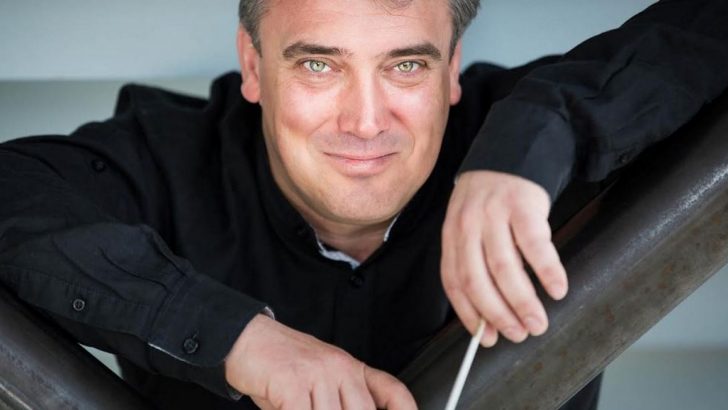Despite the Covid-19 Level 3 restrictions, the RTÉ NSO continues its season at the National Concert Hall. Playing without audience and behind closed doors, the concerts are being broadcast on RTÉ Lyric fm and streamed live on www.rte.ie/culture on Friday nights at 7pm.
The current series brings the welcome return of principal conductor Jaime Martín in three interesting programmes. The first of these, which took place last Friday, included a Beethoven 250th anniversary tribute through his 7th Symphony, described by Richard Wagner as “the apotheosis of the dance”.
Tomorrow’s concert (Friday, October 16) sandwiches Mozart’s delightful K136 Divertimento in D between two other charming scores – the Suite from Stravinsky’s ballet Pulcinella and Prokofiev’s 1st Symphony, known as his ‘classical’. Both works look back in time with the Stravinsky taking its cue from the style of Giovanni Battista Pergolesi (1710-1736) and others of that period. Prokofiev recalls Haydn but both composers pepper their music with their own piquant harmonies that give both scores significant stamps of their own.
Homeland
Having been commissioned by Sergey Diaghilev for his Ballets Russes Company, Pulcinella was first seen in the Paris Opéra on May 15, 1920. Choreography was by Léonide Massine, who also danced the title role, with sets and costumes by Pablo Picasso.
The last of the three concerts, on Friday, October 23, takes us to Señor Martín’s homeland with works by Manuel de Falla, Enrique Granados and Ruperto Chapí (1851-1909), a composer with whom I am unfamiliar although prolific in his output of zarzuelas. With its mixture of aria, popular song spoken dialogue and dance, the zarzuela is roughly the Spanish equivalent of operetta.
Dating from 1897 and still enjoying extensive popularity in Spain, Chapí’s La Revoltosa (The Troublemaker) centres on a somewhat provocative young lady, Mari-Pepa. The spirited prelude, based on the piece’s main themes, is said to have “wit, vitality and intoxicatingly atmospheric orchestral writing”. Interestingly, Placido Domingo’s mother, Pepita Embil, enjoyed a considerable reputation as the mischievous Mari-Pepa.
Falla is being represented by selections from his comic ballets, The Three Cornered Hat and Love the Magician. The former’s first performance was in London’s aptly named Alhambra Theatre by the Ballets Russes in Massine’s choreography on July 22, 1919. Love the Magician had come a little earlier being unveiled in Madrid’s Teatro Lara on April 5, 1915.
Falla died in 1946 in Alta Garcia, near Córdoba, Argentina from whence his remains were returned to his native Cádiz. Having a slightly superstitious disposition, he believed his life was divided into seven-year periods. Ever enchanted with his own country’s folk music, and greatly influenced in this by his teacher Felipe Pedrell (1841-1922), most of his compositions, not least The Three Cornered Hat and Love the Magician, are rooted in a totally Andalusian ambience.
Singer and dancer Rebeca Sanchez joins the orchestra for four of Love the Magician’s vocal numbers and the ballet also includes the sparkling Ritual Fire Dance. Whether or not Ms Sanchez entices conductor Martín to join her in a paso doble is an open question. “We wait and see,” as British Prime Minister HH Asquith allegedly said.


 Jaime Martin
Jaime Martin 